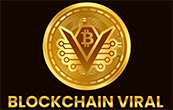NFT marketplaces are real estate built especially for the advertising, trading, and exchanging of these new forms of digital assets referred to as non-fungible tokens. These marketplaces are based on the blockchain and have smart contracts that ensure the safe enforcement of transactions. Businesses also get to buy, sell, and transfer valuable items in the virtual world such as art works, music, games, and collectibles making the NFT marketplaces central places for artists and customers on blockchain based digital assets.
How Do NFT Marketplaces Work?
An NFT marketplace acts as an intermediary market for buyers and sellers to transact through decentralized contracts secured by blockchain smart contracts. An NFT market refers to a structure that addresses the purchase and sale of NFTs as they facilitate ownership transfer and payment reconciliation when people transact. Nearly all marketplaces offer compatible wallets such as Metamask for storing of NFT and other crypto assets. They also can mint digital assets of their choice to NFTs, specify royalty and then put for sale through available listing methods including fixed price or auctions.
Types of NFT Marketplaces
Open Marketplaces
Currently, there are platforms, for example, OpenSea or Magic Eden, where virtually any type of NFT collection is allowed, from art to virtual real estate. These marketplaces are designed for the various classes of users and work with a plurality of blockchains such as Ethereum and Solana.
Curated Marketplaces
Some of the socials made for purchasing art, like SuperRare, sell only limited and unique pieces. They also have their rules that require artists to strictly meet before their products are posted.
Gaming-Centric Marketplaces
Thus specialized sites such as Magic Eden demonstrate gaming NFT and collection items that can be exchanged against assets originating from particular environments.
Top NFT Marketplaces in 2024
OpenSea
OpenSea is arguably one of the biggest and most general NFT market places with all sorts of NFTs available in various categories. Some of them include lazy minting and easy to use auction tools etc.
Magic Eden
Magic Eden started on Solana and has since moved to Ethereum where it offers functions like whitelisting and a great platform for the new projects’ launches.
Blur
For a professional trader, Blur offers a fundamental set of unique features and real-time NFT collections for trading.
SuperRare
Focusing on exclusive digital art, SuperRare cares about artists and has a strong collector community at the same time.
LooksRare
LooksRare is a decentralized marketplace controlled by the community that allows minting NFT for sale, providing bonuses such as $LOOKS tokens and has functional options like the setting of the floor price depending on the trait.
Key Features of NFT Marketplaces
Blockchain Compatibility: Current compatibility of the Burning Leo NFTs with blockchains such as Ethereum, Solana, Binance Smart Chain, and others.
Wallet Integration: Acceptance of wallets like Meta Mask, Trust wallet, and Coinbase wallet among other wallets.
Minting Options: Features for artists and designers to generate their own tokens on the site.
Royalty Systems: Royalties to artists who can be paid automatically on any secondary sales.
Search and Filter Tools: special tools for searching collections and traits in order to improve or simplify the usage of the application.
How to Select the Right NFT Marketplace
These are areas that should inform your choice of an NFT marketplace; including the fees charged in relation to blockchain, usability, activity, and NFT specialties. Other formats are open markets like OpenSea or for higher quality pieces curated markets like SuperRare.
To learn more on NFT marketplaces and their operations, visit NFT Droppers.



